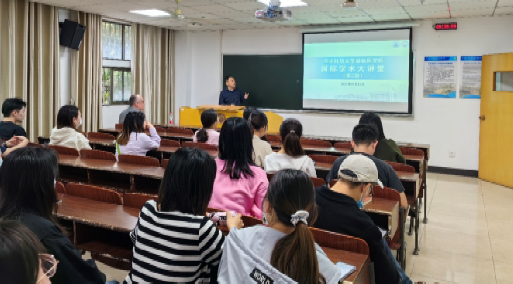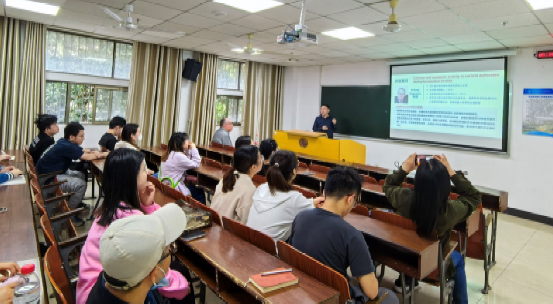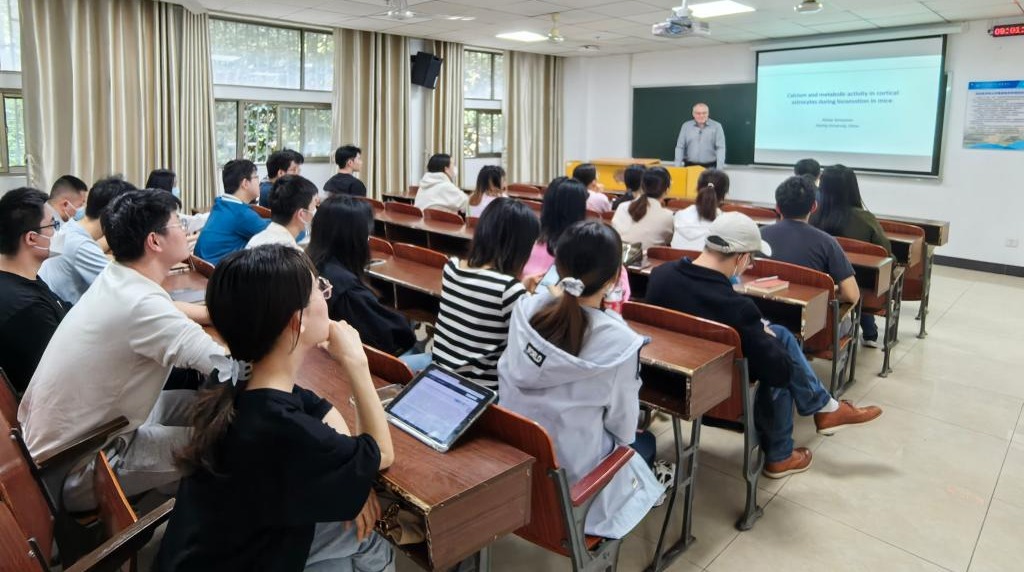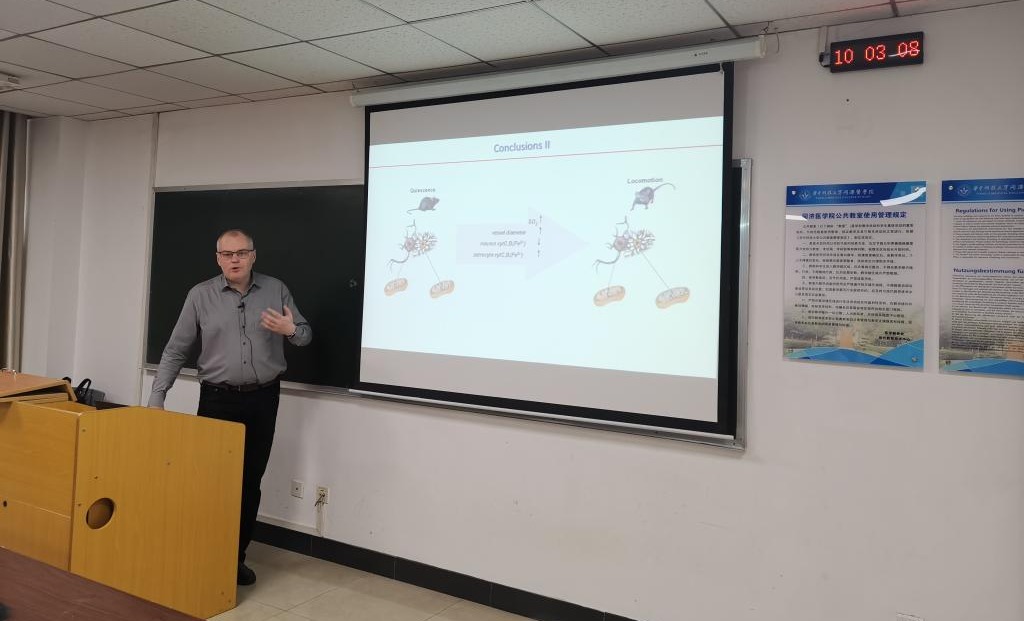On April 12, 2023, the 2th BMS International Lecture Series was held at Tongji Medical College. Under the invitation of Prof. Lingqiang Zhu from the School of Basic Medicine, Prof. Alexey Semyanov, a corresponding member of Russian Academy of Sciences, paid a visit in person and gave a lecture entitled "Calcium and metabolic activity in cortical astrocytes during locomotion in mice".

Prof. Lingqiang Zhu presided over this event and first made a brief introduction to the lecturer. Prof. Alexey Semyanov is an outstanding expert in European neuroscience who has long been engaged in the research of brain extra synaptic signaling and neuron-glial interactions. He used to be a Unit Leader at RIKEN Brain Science Institute in Japan, Deputy director at Institute of Bioorganic Chemistry RAS in Russia, and the Honorary professor at University College London. In 2016, he was elected a corresponding member of the Russian Academy of Sciences, and in 2019, he was elected as a member of Academia Europaea. As the principle investigator, he has participated in 15 major European scientific research projects in the field of neuroscience with more than 10 million US dollars in scientific research funds in total. He published more than 100 journal papers, 2 monographs, and owned 10 patents. He has served in editorial board of more than 20 international neuroscience journals, has organized over 19 international neuroscience conferences, and is a member of more than 20 international academic organizations.

Prof. Semyanov began his academic report shortly after he expressed his gratitude to Prof. Zhu for his invitation and thoughtful arrangement. Astrocytes, the most generally distributed cells in mammalian brain, couple neurons with blood vessels to form neuron-glial-vascular units, which play an important role in the normal function of the brain. Therefore, Professor Alexey Semyanov proposed a new concept called Brain Active Milieu (Figure1) to describe the functional network among these components. Astrocytic Ca2+ signals transmitted through the astrocytic network induce release of signaling molecules affecting neuronal excitability, synaptic transmission and plasticity, and guiding information processing across the neuronal network. Taken together, decoding astrocytic Ca2+ signaling is an important and meaningful challenge.

To study Ca2+ signals in the astrocytes, fluorescent calcium sensor was specially expressed in astrocytes via AAV vector with astrocyte promoter (AAV.GfaABC1D-cyto-GCaMP6f), and the cranial window was implanted into the somatosensory cortex of mice. Astrocytic Ca2+ signaling changes were detected when head-fixed mice were moving on the treadmill or at rest. Calcium activity with regular duration and amplitude was recorded in the locomotion period. Besides, combined with in vivo optical fiber recording, real-time Ca2+ signaling of astrocytes can be analyzed in relevant brain regions during behavioral experiments when mice were freely moving, such as three-chamber sociability test and spatial cognition test. And a series of metabolic changes during locomotion, including mitochondrial function of astrocytes (redox state of ETC complex, relative content of H2O2, Ca2+ level and matrix dynamics) and concentration of oxygenated or deoxyhemoglobin in cerebral vessels, could be monitored by Raman spectroscopic microscope.

The audience present actively interacted with Prof. Semyanov after his well-prepared speech. All the students and faculty at the venue were impressed by Prof. Semyanov's erudition and patience.

The School of Basic Medicine managed to launch the BMS International Lecture Series and BMS Forum on the Frontiers of Future Life Medicine in 2022. The former invites one internationally well-known expert while the latter invites three experts each time to share the latest findings in the field of neuroscience. The School of Basic Medicine tries to build the two events into a brand and sustainable platform based on which a series of high-level international academic activities will be organized. It is hoped that the two platforms can bring together renowned scholars in the field of neuroscience worldwide to share cutting-edge knowledge. More importantly, scholars can take this opportunity to enhance communication and mutual trust, and explore the potential for in-depth scientific cooperation, thus laying a solid foundation for jointly overcoming major global problems.